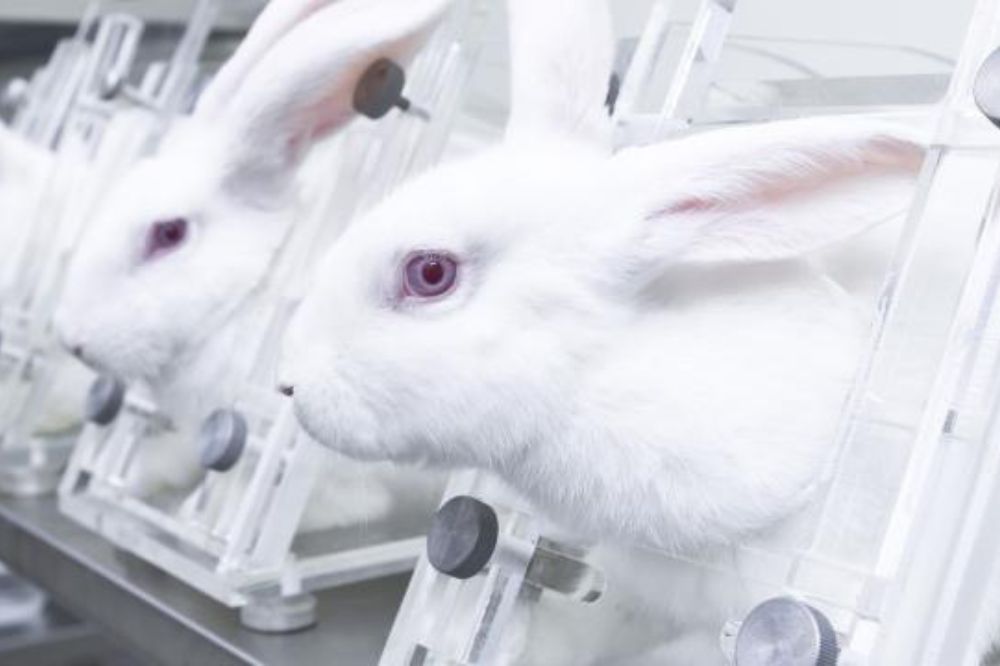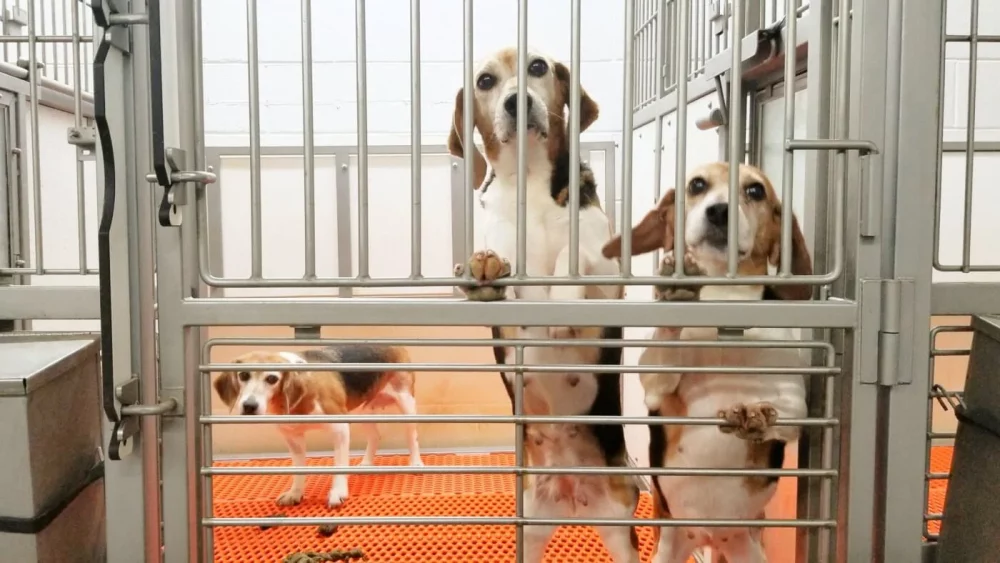Animal protection charity calls for animal testing to be phased out

An animal protection charity has called for the UK Government to carry out its pledge to work on the phasing out of animal testing after it was revealed that there were 31,940 uses of animals in laboratories in Wales in 2023.
Animal protection NGO Cruelty Free International, the leading organisation working towards ending animal experiments worldwide, urges the UK government to build on its positive manifesto commitment and begin the concrete work of planning the phase-out of animal testing following the publication of new Home Office statistics.
In Wales, there has been a significant decrease of 19% on 2022 – although uses in Wales represent a small proportion of all uses across Great Britain, which showed a fall of just 3%, to 2,681,686.
Manifesto pledge
Dr Emma Grange, Cruelty Free International’s Director of Science and Regulatory Affairs, said: “With 2.68 million uses of animals in British laboratories in 2023, the burden on animals remains high and the rate of decline is painfully slow, despite this fall of 19% in Wales.
“We hope that the government’s manifesto pledge to work on the phase-out of animal testing in Great Britain means that this is one of the last years where the use of animals is anywhere near this level.
“We need bold, forward-thinking policies just like those we have set out to government in support of their commitment to a phase-out. These actions can begin to free us from the use of outdated experiments on animals, to the benefit of all including the animals used in tests.
The focus must now be on plans to end animal testing and the transition to exclusive use of non-animal approaches, some of which have already been shown to perform at least as well, or better, than tests on animals. As well as the government, we call on regulators and the wider scientific community to proactively contribute to the progression away from animal testing. Any cruel animal test is one too many and we will continue to fight for zero animal experiments in Great Britain.”
Genetic modification
The creation and breeding of genetically altered animals – those whose genes have been modified but have not then been used in further tests – accounted for 54% of the total number of uses in Wales in 2023, amounting to 17,171 uses.

In Great Britain as a whole, genetically altered animals accounted for 45% of all uses (1,213,116). Basic research, curiosity-driven research that attempts to shed light on biological processes, accounted for 29% of the Great Britain total (769,865); translational research, research that attempts to develop treatments or cures for diseases, 14% (368,685); regulatory testing, standardised tests designed to assess the safety or effectiveness of chemicals, medicines and other products, 9% (246,163); and routine production, using animals to produce things like antibodies that go on to be used in many areas of scientific research and testing, 2% (59,222).
These figures also show that, despite progress in some areas, the full elimination of increasingly outdated tests is yet to be achieved and, in fact, an increase for some tests has been observed for 2023.
Cruelty Free International’s UK Replace Animal Tests (RAT) List describes six animal tests that are conducted in Britain despite having approved non-animal replacements and whose abolition could save over 80,000 animals every year; this list includes skin irritation tests on rabbits (2023 saw an increase from zero to 3), eye irritation tests on rabbits (an increase from three to seven) and skin sensitisation tests on animals (248 to 296, an increase of 19%). These disappointing figures highlight the need for coordinated action driven by government.
Suffering
Of the 2.68 million uses of animals in 2023, 18% were considered by researchers to have caused moderate or severe pain, suffering and distress to the animals involved. These two categories involved a total of 495,658 animals.
The total number of experiments on dogs fell by 9%, to 3,770, despite a 5% rise in the number of dogs used for the purposes of plant protection legislation, to 205.
The number of tests using cats fell by 38%, to 63, and there was a 1% decrease in experiments on monkeys, to 2,169. However, there was a 39% rise in the use of horses, to 11,409; and a 1% increase in the use of rabbits, to 8,936.
Support our Nation today
For the price of a cup of coffee a month you can help us create an independent, not-for-profit, national news service for the people of Wales, by the people of Wales.






Animal testing is needed for some medical experiments. I agree with it.
There is no justification for any animal experiments and the uk will be a far more civilised country with their abolition!
I refused to cut up any dead creature in school, consequently I make great Agar Jelly and am opening a Jelly Deli…this time next year Rodders…